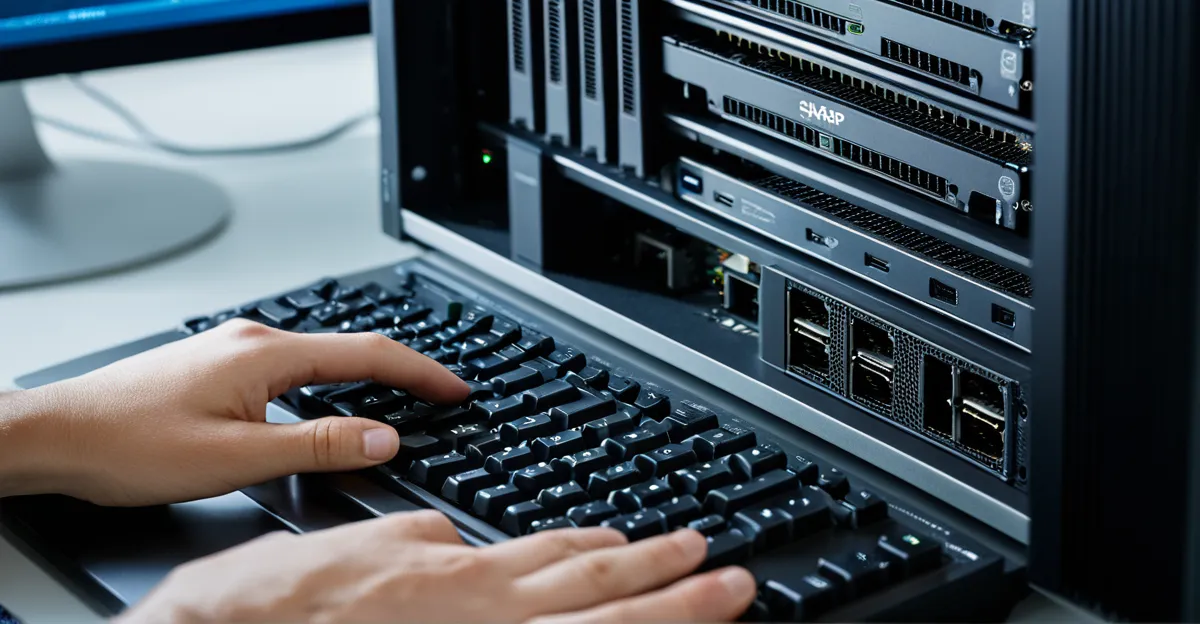Essential Factors When Choosing Computing Hardware in the UK
Choosing the right computing hardware requires a clear understanding of your specific needs. Whether for personal, business, or specialized applications, defining the primary use case sets the foundation. For example, business users often prioritize reliability and multitasking ability, whereas personal users may focus more on multimedia capabilities or gaming.
Key hardware specifications must align with these needs. The CPU is critical for processing speed; higher clock speeds and multiple cores benefit both demanding business software and immersive personal use. Equally important is RAM, which affects multitasking and smooth operation. Storage type and capacity also matter—solid-state drives (SSDs) offer faster performance than traditional hard drives, a valuable factor in both markets. Additionally, a dedicated GPU is vital if graphics-heavy tasks like video editing or gaming are involved.
Also to read : What are the opportunities for UK computing hardware in the Internet of Things (IoT)?
Budget constraints inevitably guide selection. Consider the total cost of ownership, which includes not only the purchase price but also support, upgrades, and energy consumption. Evaluating these essential factors ensures that computing hardware selection matches your requirements without overspending in the UK market.
Understanding the UK Computing Hardware Market
An insight into suppliers, availability, and service
Also to discover : How Does Computing Hardware Influence the Future of Technology?
The UK computing hardware market is characterized by a blend of established local suppliers and diverse retailers that serve both individuals and businesses. Prominent suppliers like Overclockers UK, Scan Computers, and Ebuyer dominate the landscape, offering a wide range of components, from CPUs to graphics cards. These suppliers prioritize stocking the latest technology, but availability may vary due to supply chain fluctuations or high demand.
Regional differences play a significant role in the availability of hardware. In metropolitan areas such as London and Manchester, consumers enjoy quicker access to new releases and wider product ranges. Conversely, more remote regions might experience delays or limited stock, impacting timely hardware procurement.
Warranty and after-sales support also vary by region and supplier. Many local suppliers offer comprehensive warranties and customer service, ensuring users can access support without long wait times. Understanding the regional nuances of the UK computing hardware market helps buyers make informed decisions, balancing product availability with reliable local support. This guarantees a smooth purchasing experience backed by effective post-sale assistance.
Recommended UK-Based Computing Hardware Brands and Retailers
When seeking UK hardware brands, it’s important to consider both product quality and local support. Brands like Aria PC and Scan have established strong reputations for delivering reliable, customizable computing solutions tailored for a variety of users—from casual consumers to professionals. These brands offer popular models with the latest components, ensuring performance and longevity.
Trusted retailers also play a crucial role in the UK market. Retailers such as eBuyer, Overclockers UK, and Box provide both online and physical store experiences, giving customers access to a broad range of recommended computers and hardware components. These retailers are known for their competitive pricing, swift delivery, and helpful customer service.
One significant advantage of choosing local options is the availability of exclusive offers, extended warranties, and responsive after-sales support. This ensures users receive timely assistance and tailored advice, which can be a challenge with international sellers. Exploring these UK-based brands and retailers not only supports the local economy but also nurtures a more confident purchasing experience for computing hardware enthusiasts.
Practical Steps for Comparing and Selecting Hardware Options
When engaging in hardware comparison, prioritize benchmark scores that illustrate real-world performance. Use reputable sources that provide detailed metrics relevant to your intended use, such as processing speed or energy efficiency. This approach narrows down hardware that meets your specific needs effectively.
Next, leverage user reviews and ratings focused on the UK market, as these often highlight regional factors like compatibility, warranty terms, and local customer support. UK-specific advice ensures you account for factors like voltage differences and shipping considerations.
The decision steps should also include creating a shortlist of contenders. Testing shortlisted hardware options whenever possible, either through trial periods or in-store demos, is crucial. This hands-on experience confirms if the hardware delivers on promises and fits your practical requirements. Evaluating setup complexity, compatibility with existing systems, and noise level can influence this final choice.
In summary, a combination of benchmarking data, UK-centric reviews, and practical testing forms a robust buying guide. Taking these explicit decision steps maximizes your satisfaction and minimizes post-purchase issues, helping you invest wisely in hardware fit for your circumstances.
UK-Specific Tips and Resources for an Informed Purchase
When shopping for technology in the UK, leveraging UK computing resources is crucial to make confident and well-informed decisions. Start with reputable UK-based comparison tools and online guides that cater specifically to British consumers. These resources provide up-to-date product reviews, pricing, and user feedback tailored to the UK market, ensuring you find options that meet local needs and budgets.
Engaging with local tech forums is another effective way to gather insight. These communities often share practical advice, discuss real-world performance, and highlight issues unique to the UK, such as compatibility with regional software or network standards. Forums allow potential buyers to ask targeted questions and receive feedback from experienced users, which can guide your purchase confidently.
Lastly, paying attention to UK standards and regulations is essential. Products should comply with specific electrical safety and data protection laws enforced in the UK. Checking certification marks and adherence to these safeguards guarantees that your purchase is both safe and legal. Together, these UK computing resources, tips, and local links streamline the buying process, making it easier to choose devices that truly fit your needs.


